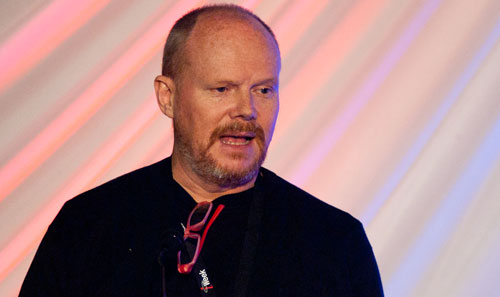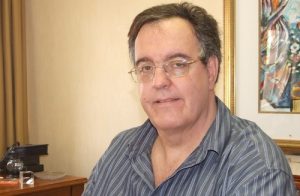
The National Planning Commission’s National Development Plan, released last week, makes several proposals for growing the information and communications technology industry, one of the most interesting of which is that the country should allow companies to trade in scarce radio frequency spectrum.
For now, the industry regulator, the Independent Communications Authority of SA (Icasa), is responsible for all spectrum management. Companies are prohibited from selling access to that spectrum to third parties.
Regulators in a number of international markets, including the UK, Germany and Australia, already allow spectrum trading, oftentimes without this attracting any onerous fees.
Whether the planning commission’s recommendation will be taken seriously by the department of communications and cabinet is open to question, however, even though industry players say that in principle it would be a good move.
“It does make sense,” says BMI-TechKnowledge MD Denis Smit. “But whether it would fit in with government’s policy on how it will manage spectrum going forward [is unknown].”
Smit points to the contentious Electronic Communications Amendment Bill, published last week, that proposes taking away many of the powers Icasa currently has over spectrum management and centralising these in the office of the minister of communications. “The department is clearly taking more control over the allocation of spectrum, which has its own unintended consequences.”
The National Development Plan suggests mechanisms for allocating radio frequency spectrum need to be “smarter” and says these mechanisms could include “spectrum auctions and reverse bids for underserviced areas”. Moreover, it says spectrum “should be fully tradeable once allocated”.

Steve Song, founder of Village Telco and a vocal advocate of the use of television “white spaces” spectrum — unused portions of spectrum in the VHF and UHF bands allocated to broadcasters — to provide broadband to underserviced areas, says spectrum trading is “not a bad idea”.
He says anything that allows for more flexibility in moving spectrum from where it isn’t used — or isn’t used effectively — to where it can be is a good thing. However, he warns he’s not aware of many global examples where spectrum trading has had a big impact.
“There’s a lot of theoretical potential in the idea,” says Song, “but I don’t actually see anywhere where these lively markets of people trading spectrum to deal with inefficiencies have actually come into being.”
Nevertheless, Song says allowing spectrum trading might result in useful applications in SA. For example, when state-owned Sentech tried leasing a portion of its vast allocation of spectrum in the 2,6GHz band, it was reprimanded and had to renege on the agreement.
Had Sentech being able to trade the spectrum it could have resulted in its being put to productive use. Sentech’s 50MHz allocation is lying fallow.
However, Song believes opening TV white spaces spectrum will have a bigger impact. He says the future of wireless telecommunications is in the “cognitive radio”, where technology is smart enough to allocate spectrum itself without causing spectrum interference. “That’s what white spaces use is about: on-demand allocation to the appropriate user at the appropriate time.”

Though wholly independent cognitive radio still has a long way to go, Song says a database-driven approach to TV white spaces — where a digital database allows people or devices to see what spectrum is free in a given area at a specific time and then use it — is ready now, and could have a “huge impact” in increasing broadband penetration.
“All the terms used [in the planning commission’s report] suggest more spectrum for mobile operators”, says Song. “That’s good, operators should have more spectrum, but there should also be new market entrants and ways to guarantee that.”
Nevertheless, he says it’s encouraging that the commission is talking about broadband and spectrum issues. Too often those terms aren’t part of high-level discussions when they ought to be.
Henk Kleynhans, founder of Skyrove and another advocate of white-space spectrum, echoes Song’s sentiments. “My first reaction to the report is to say that it’s very disappointing that there’s no mention of making unlicensed spectrum available.”
Unlicensed spectrum in the 2,4GHz and 5,8GHz bands has been used elsewhere to “get rural areas connected”. Kleyhans says the US Federal Communications Commission and the UK’s Ofcom are making “swathes” of unlicensed spectrum available. He says this is “clearly the future of spectrum management”.
He says that although spectrum trading and other models for spectrum reuse are laudable, these approaches are only a “stopgap” measure.
He says work in unlicensed spectrum is what has made technologies like “Super Wi-Fi” possible at all and “considering we now have the equipment for Super Wi-Fi here, and as it’s being done elsewhere, unlicensed spectrum is essential for addressing rural connectivity problems”.
Kleynhans says he expects Super Wi-Fi will “leapfrog everything else” in Africa, particularly if used in conjunction with TV white spaces. “TV white spaces spectrum is already available, so we don’t have to wait for the move to digital broadcasting [to free up spectrum].”
It’s far from clear how much of planning commission’s suggestions will become government policy. However, industry players agree that it’s encouraging that it has at least acknowledged how important broadband and spectrum discussions are to SA’s economic prosperity. — Craig Wilson and Duncan McLeod, TechCentral
- Subscribe to our free daily newsletter
- Follow us on Twitter or on Google+ or on Facebook
- Visit our sister website, SportsCentral (still in beta)

